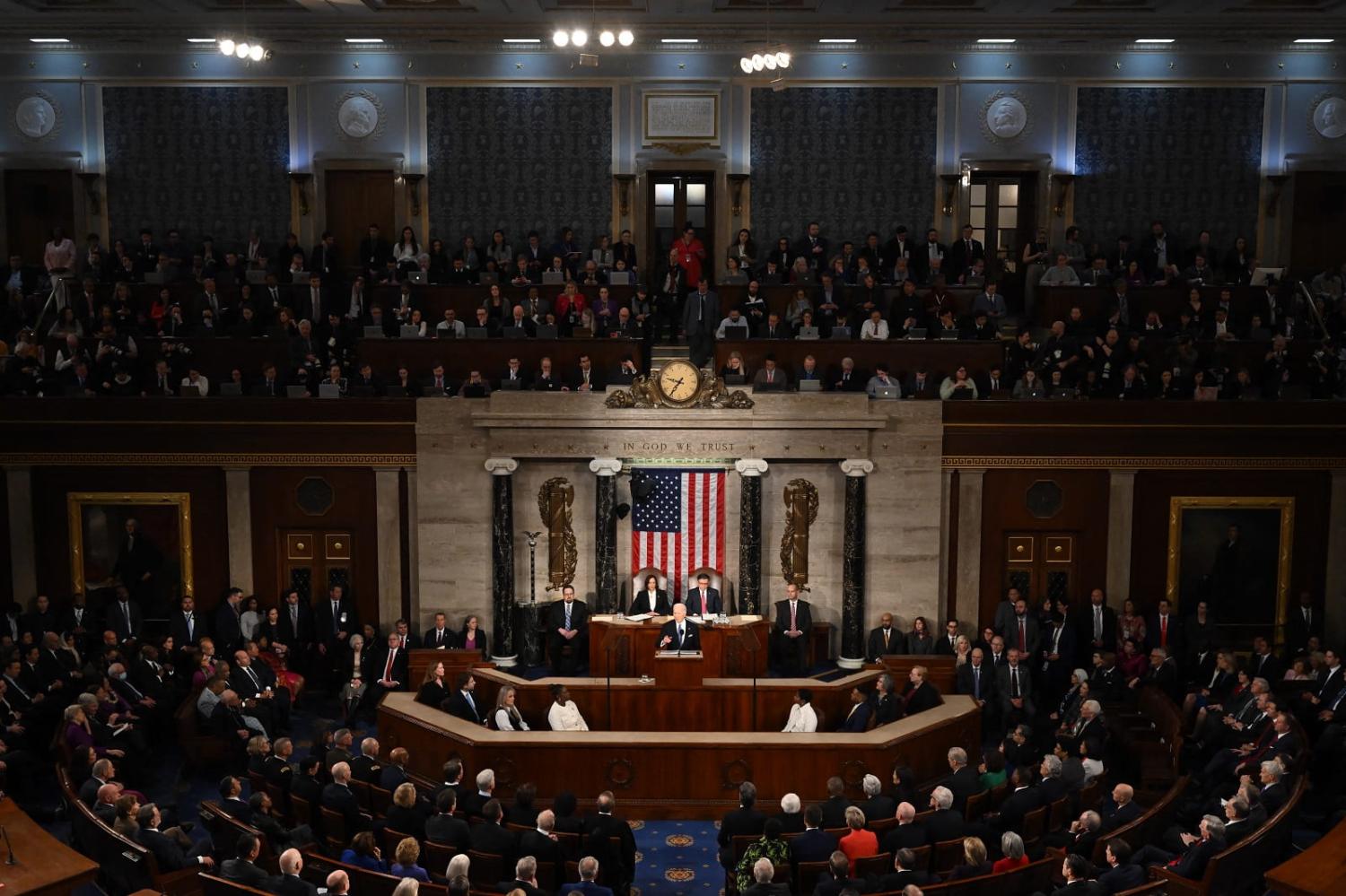Many Australians are following the rematch in the 2024 US presidential election between Donald Trump and Joe Biden. Trump's reality TV approach to politics makes it hard to avert one's eyes, with onlookers concerned about the consequences for Australia. But regardless of whether Trump or Biden wins the presidency, the party that controls the US Congress will influence foreign policy. The president may lead, but Congress can impede.
Parties in the US Congress have razor-thin margins separating them, and the elections could give either of them power with just a small shift of seats. The Democrats control the Senate 51–49. In the House, Republicans control the 435-seat chamber by just two seats. With the country so polarised, it is doubtful there will be a sizable swing in seats that would give either party a mandate. But all it takes for power to shift is a few thousand votes in some states and districts.
Here is why those votes will matter. Under the US Constitution, Congress has considerable authority to push back against a president, which typically happens when a rival party controls a chamber. For Australia, the US Senate will be especially important given its role in foreign policy debates, including presidential appointments like the Secretary of State and approval of treaties (last year, Congress passed legislation that prohibits any president from withdrawing from NATO without the approval of two-thirds of the US Senate). The US House weighs in heavily on defence spending, foreign aid and trade agreements. Many decisions by these chambers have implications for US allies. If Republicans run the table and win control of the White House and both chambers of Congress, radical policy change affecting Australia is still unlikely, but it is bound to introduce uncertainty in US foreign affairs, which has its own implications.

What about AUKUS? Australians have committed themselves to a big financial and geopolitical investment with the trilateral partnership. Will the US Congress hold up its end of the bargain under new leadership? While any international deal holds risks, I think so. There appears to be more bipartisan consensus about security perils in the Pacific compared to Europe’s threat from Russia. Trump has no special animus towards Australia (like he does Europe), and while he’s not very strategic, he is transactional. This deal appears to benefit US domestic workers and the defence industry. Trump will get pushback from Congress if he tries to renege, especially if the Democrats have control. Republicans will push back too, if the replacement for the retiring Republican leader in the Senate, Mitch McConnell, is from the same hawkish wing of the party. Keep in mind that the National Defense Authorization Act, which approved AUKUS, passed with significant bipartisan support except for the ideological fringes of both parties. The centre still holds on foreign policy in Congress.
So, who is likely to win control of these chambers? They are as hard to predict as the presidency. The Republicans probably have an advantage in the Senate because the Democrats are trying to protect more incumbents in highly competitive states. And three states are complete toss-ups: rust-belt Ohio, mountain-rural Montana, and western-sunbelt Arizona. All three Republican candidates have earned the MAGA label from Trump — meaning they support his brand of America First, election-denying populism. In two of those states, Ohio and Montana, the Democratic incumbents have defied gravity in previous elections by winning in states dominated by Republican voters. It is far from clear they can pull that off again.
Over in the House, it is a somewhat different story with Democrats feeling like they have a decent shot of taking control. The seat margin favouring House Republicans gets smaller with each retirement of a disillusioned moderate Republican. Democrats and Republicans are defending roughly an equal number of toss-up seats, about ten each. Keep your eyes on California and New York. The good news for Democrats is that many toss-ups occupied by Republicans are in these two blue states with "crossover" districts (which vote for president of one party and House for the other). In an era of party polarisation, crossover districts are a vanishing breed. And Democrats certainly hope so in these districts, which will be lavished with millions in campaign funds to sway a few thousand, or maybe a few hundred, voters.
House Democrats are typically at a disadvantage because of how local districts get drawn, and this election will be no different. But the House Republicans appear to be knee-capping themselves, looking like the chaos party with a radical faction, called the Freedom Caucus, pushing to depose its leaders, block funding for Ukraine, and shut down the government by refusing to approve budgets. The current Speaker, an evangelical Republican from Louisiana, is inexperienced and holding on by his fingernails. While gerrymandered districts give a slight edge to Republicans, if the party allows its most conservative factions to push hard on issues like abortion they will suffer in the suburban districts with moderate women voters.
So, the Democrats have a decent shot at re-taking the House, even if Trump wins. But bets are off if Trump expands his lead over Biden as the election nears, which would indicate a surge in Republican voters. I don't expect that to happen. The election is likely to be a nail-biter with an evenly divided electorate staying loyal to their party, even if they don't like the candidates. And in a close election for control of each office — president, Senate, and House — there are good odds of a divided government, which means the United States may drift but won't fundamentally change its relationships with allies like Australia. That may be the best news to offer during a time of rancorous disunity in the United States.

